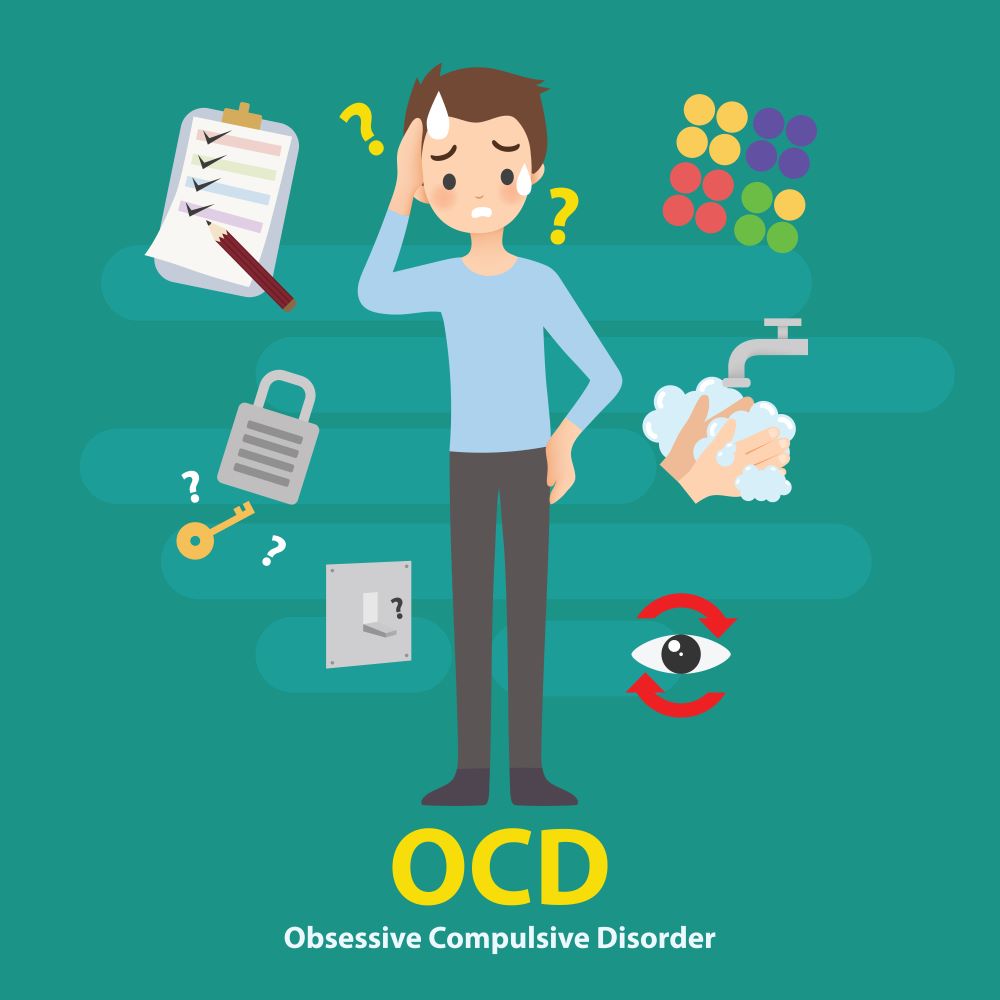The stereotypical notion that obsessive-compulsive disorder (OCD) is an obsession with hygiene is portrayed by the media. In fact, OCD has a variety of manifestations. Hence, it requires an expert therapist to conduct an OCD assessment upon a patient and determine whether the patient is dealing with OCD or not.
The next step is to diagnose the type of OCD if a patient has been found to have obsessions and compulsive behaviors. So, many people might be asking themselves- “Do I have OCD?” Answer the questions below to see whether you need therapy or not.
Quiz for symptoms of OCD
These set of questions are not a substitute for OCD assessment but is meant to help you determine if you need medical help.
Do you repeatedly check oven knobs, door locks, car locks, and cupboard locks till you are satisfied?
- Never
- Sometimes
- Often
- Very often
Do you experience intrusive thoughts of religious, violent, or sexual nature that feel out of control?
- Never
- Sometimes
- Often
- Very often
Do you worry about spreading an illness even if you have never been diagnosed with an infectious or sexually transmittable disease?
- Never
- Sometimes
- Often
- Very often
Do you frequently check your body for signs of illness or injury?
- Never
- Sometimes
- Often
- Very often
Do you tend to re-read sentences in books, emails, or letters you have written before or after sending them?
- Never
- Sometimes
- Often
- Very often
Do thoughts of fires, car accidents, or house getting flooded worry you excessively?
- Never
- Sometimes
- Often
- Very often
Do you feel guilt and feel the need to confess your actions or seek assurance for something you said or did?
- Never
- Sometimes
- Often
- Very often
Do you worry about your loved ones being harmed because you weren’t careful enough or otherwise?
- Never
- Sometimes
- Often
- Very often
Do you have irrational thoughts or urge such as pushing a stranger in front of a vehicle or stabbing a loved one with a knife?
- Never
- Sometimes
- Often
- Very often
Do you view certain colors and numbers as unlucky and do your best to avoid them?
- Never
- Sometimes
- Often
- Very often
Do you perform rituals while showering, brushing teeth, tying shoelaces, sitting down and standing up, or opening and closing a door until it feels you have completed the task properly?
- Never
- Sometimes
- Often
- Very often
Do you have an irrational fear of germs, chemicals, or diseases, and thoughts of being contaminated?
- Never
- Sometimes
- Often
- Very often
Do you have unpleasant thoughts about death, molestation, or any other unpleasant events?
- Never
- Sometimes
- Often
- Very often
Do you experience severe anxiety if things are not in a particular order or alignment such as arranging books in alphabetical order, or from thickest to thinnest, positioning furniture in their exact desired location, and so on?
- Never
- Sometimes
- Often
- Very often
Most people end up seeking psychiatric treatment much later in life, after suffering for years. However, an OCD assessment is most beneficial if done at an early age.
The symptoms of obsessive-compulsive disorder must be taken very seriously since the mental illness can be severely distressing and debilitating for the sufferer. The medical condition is not very hard to detect since it has a variety of symptoms that are easy to spot.
Most people may see common symptoms such as excessive hand washing or cleaning. However, an OCD assessment will help diagnose an individual who exhibits no outward sign of it. So, visit a reputed therapist if you experience compulsive behavior and unwanted thoughts.








Hey...Thats really nicely written article on OCD. Tomatis provides with OCD & ODD treatment in sydeny. They have the most advanced auditory stiumating program right now in Australia
ReplyDelete